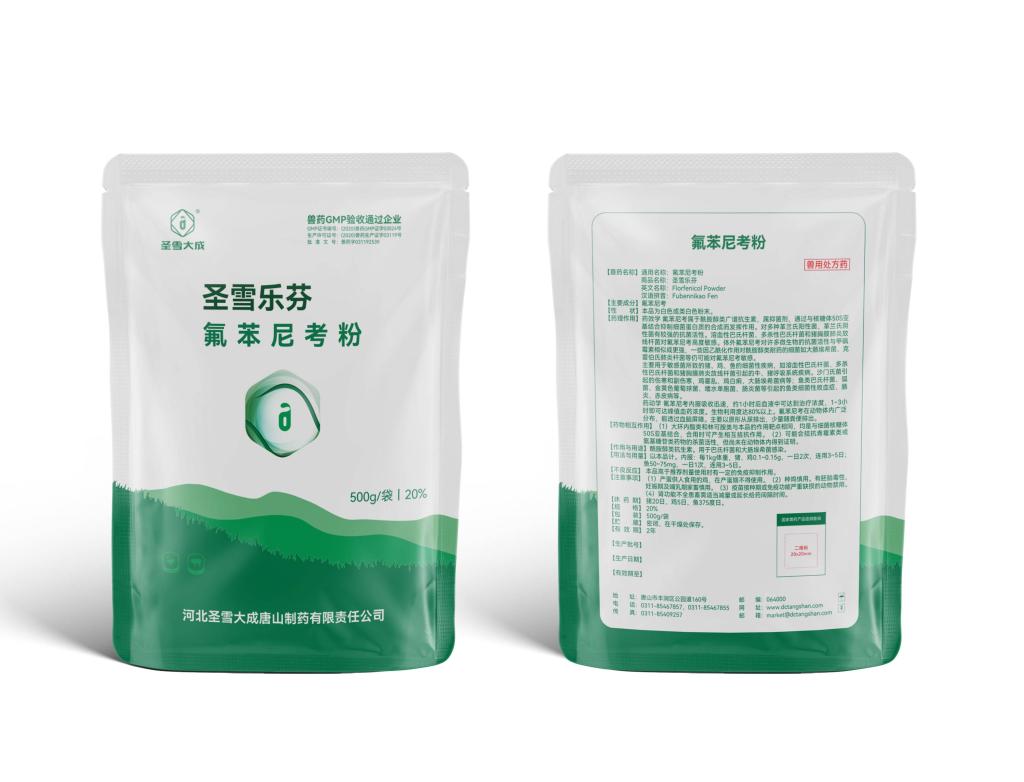Tel:+8618231198596

News
 CONTACT
CONTACT
 CONTACT
CONTACT
- Linkman:Linda Yao
- Tel: +8618231198596
- Email:linda.yao@dcpharma.cn
- Linkman:CHARLES.WANG
- Department:Overseas
- Tel: 0086 0311-85537378 0086 0311-85539701
News
Current Position:
Home >
News
>The impact of Florfenicol Powder on the immune system of treated animals.
The impact of Florfenicol Powder on the immune system of treated animals.
TIME:2024-10-18
Mechanism of Action and Pharmacokinetics
Florfenicol exerts its antibacterial effects by inhibiting protein synthesis in susceptible bacteria through binding to the 50S ribosomal subunit. It is effective against both Gram-positive and Gram-negative bacteria, making it a valuable tool in veterinary practice. Florfenicol is well-absorbed after oral, intramuscular, or subcutaneous administration, with a wide distribution throughout the body and a relatively long half-life, which allows for less frequent dosing.
Impact on the Immune System
The immune system plays a critical role in the defense against pathogens and the maintenance of overall health. Antibiotics, including florfenicol, can have direct and indirect effects on the immune system, influencing both innate and adaptive immune responses. The following sections outline the key areas of research and their findings:
Direct Effects on Immune Cells
Neutrophils and Macrophages: Neutrophils and macrophages are essential components of the innate immune system, responsible for phagocytosis and the production of reactive oxygen species (ROS). Some studies suggest that florfenicol may enhance the phagocytic activity of neutrophils and macrophages, potentially improving the clearance of bacteria. However, high concentrations of florfenicol may also have cytotoxic effects on these cells, leading to reduced function.
Lymphocytes: Lymphocytes, including T and B cells, are central to the adaptive immune response. Research indicates that florfenicol can modulate lymphocyte proliferation and cytokine production. For example, some studies have shown that florfenicol can suppress T-cell proliferation and alter the balance of Th1/Th2 cytokines, which may affect the immune response to secondary infections.
Indirect Effects on the Microbiome
Gut Microbiota: The gut microbiota plays a crucial role in the development and function of the immune system. Antibiotic use, including florfenicol, can disrupt the gut microbiota, leading to dysbiosis. This disruption can result in reduced diversity and changes in the composition of the microbial community, which may impair the immune system's ability to respond to pathogens. Dysbiosis has been linked to increased susceptibility to infections and the development of inflammatory conditions.
Immune Tolerance and Regulation: The gut microbiota is involved in the induction of immune tolerance and the regulation of immune responses. Disruption of the gut microbiota by florfenicol may lead to altered immune tolerance, potentially contributing to the development of autoimmune and allergic conditions.
Clinical Implications
Antibiotic Stewardship: Given the potential impacts on the immune system, it is essential to practice antibiotic stewardship. This includes using florfenicol only when necessary, at the appropriate dose and duration, and avoiding unnecessary or prolonged use to minimize the risk of immune system modulation and the development of resistance.
Probiotics and Prebiotics: To mitigate the effects of florfenicol on the gut microbiota, the use of probiotics and prebiotics may be beneficial. These supplements can help restore the balance of the gut microbiota and support immune function during and after antibiotic treatment.
Monitoring and Follow-Up: Regular monitoring of the immune status of treated animals, particularly in cases of prolonged or repeated use of florfenicol, is recommended. This can include assessing complete blood counts, serum immunoglobulin levels, and other relevant immune markers to ensure that the immune system remains robust.
Conclusion
The impact of florfenicol powder on the immune system of treated animals is a growing area of research, with significant implications for veterinary practice. While florfenicol is an effective antibiotic, it can influence both the innate and adaptive immune responses, as well as the gut microbiota, which plays a critical role in immune function. By understanding these effects, veterinarians can make more informed decisions regarding the use of florfenicol, implement strategies to support the immune system, and promote the overall health and well-being of their patients. Ongoing research in this field will continue to provide valuable insights and improve the management of bacterial infections in animals.
- Tel:+8618231198596
- Whatsapp:18231198596
- Chat With Skype







